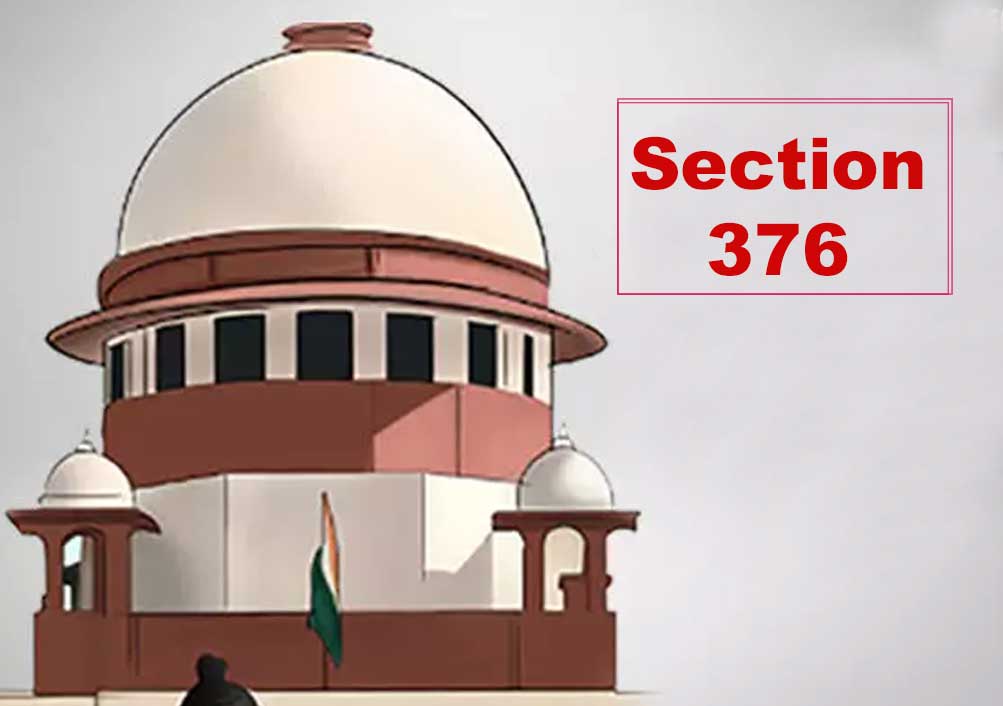In CRIMINAL APPEAL No.257 of 2023-SC- Folly to treat each breach of promise to marry as false promise and prosecute person for offence u/s 376 IPC: Top Court allows appeal against Order convicting rape accused
Justices Ajay Rastogi & Bela M. Trivedi [30-01-2023]

Read Judgment: NAIM AHAMED v. STATE (NCT OF DELHI)
LE Correspondent
New Delhi, February 1, 2023: While clarifying that in case of breach of promise, accused might have given a promise with all seriousness to marry prosecutrix and subsequently might have encountered certain unforeseen circumstances which prevented him to fulfill his promise, the Supreme Court has acquitted an accused in a rape case.
While allowing the appeal instituted by the appellant-accused against the judgment passed by the of Delhi High Court confirming the conviction of the appellant-accused, the Division Bench of Justice Ajay Rastogi and Justice Bela M. Trivedi held, “So, it would be a folly to treat each breach of promise to marry as a false promise and to prosecute a person for the offence under Section 376. As stated earlier, each case would depend upon its proved facts before the court.”
The case of the prosecution was that the prosecutrix was residing in a tenanted premises with her husband and three children. The accused was also residing in a tenanted premises which was situated in front of her house.In 2015, the prosecutrix lodged a complaint against the accused alleging that the accused was persuading her by stating that her husband was not earning sufficient income and that he (the accused) had a good job and he would maintain her according to his status. The accused also assured her that he would solemnize marriage (nikah) with her.
Thereafter, the accused with an intention to have illicit intercourse with her, used to call her at various places, as a result thereof, she was impregnated in the year 2011. She further alleged that the accused persuaded the prosecutrix that after the delivery of the child, he would marry her.
In the year 2012, the accused enticed her away in another rented premises and continued to have illicit relationship with her. The prosecutrix further alleged in the complaint that the accused had lied to her that he had gone to his native place, but in fact he had not gone. In this backdrop, the complaint was filed.
The Sessions Court while holding the appellant-accused guilty for the offence under Section 376 of IPC had sentenced him to undergo rigorous imprisonment for a period of 10 years and pay fine of Rs.50,000, in default thereof to suffer further imprisonment for a period of one year.
The High Court in the appeal filed by the appellant, modified the order of sentence passed by the Sessions Court, by reducing the substantive sentence to 7 years with fine of Rs.5,000.
The Bench took into consideration Section 90 and Section 375 of IPC and held, “It cannot be gainsaid that a consent given by a person would not be a consent as intended by any Section of the Indian Penal Code, if such consent was given by the person under the fear of injury, or under a misconception of fact as contemplated in Section 90 IPC”.
Further, Section 375 also describes certain acts which if committed by the accused under the circumstances mentioned therein, as the commission of Rape, even though committed with the consent of the prosecutrix, the Court further remarked.
As per the Bench, the basic principles of criminal jurisprudence warrant that the prosecution has to prove the guilt of the accused beyond reasonable doubt by leading cogent evidence, however, considering the ethos and culture of the Indian Society, and considering the rising graph of the commission of the social crime – Rape, the courts have been permitted to raise a legal presumption as contained in Section 114A of the Indian Evidence Act.
Moreover, the Court also referred to the judgments in Uday vs. State of Karnataka and Deepak Gulati vs. State of Haryana and noted that one may be tempted to hold the appellant-accused guilty of the offence under Section 376 IPC as has been done by the Sessions Court and the High Court, however, on the closer scrutiny of the evidence on record, there was fallacy on the part of the courts below to hold the appellant guilty under Section 376 IPC.
“It is pertinent to note that there is a difference between giving a false promise and committing breach of promise by the accused. In case of false promise, the accused right from the beginning would not have any intention to marry the prosecutrix and would have cheated or deceived the prosecutrix by giving a false promise to marry her only with a view to satisfy his lust, whereas in case of breach of promise, one cannot deny a possibility that the accused might have given a promise with all seriousness to marry her, and subsequently might have encountered certain circumstances unforeseen by him or the circumstances beyond his control, which prevented him to fulfill his promise”, the Court observed.
In view of such observations, the Court set aside the impugned judgments and orders passed by the High Court and the Sessions Court except the direction for the payment of compensation to the prosecutrix.
Thus, the appellant-accused was acquitted from the charges levelled against him and was directed to be set free forthwith.
Sign up for our weekly newsletter to stay up to date on our product, events featured blog, special offer and all of the exciting things that take place here at Legitquest.




Add a Comment